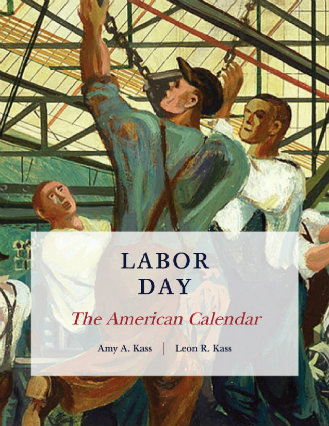Introduction
Just as Memorial Day has become embedded in American culture as the day marking the beginning of summer, so too Labor Day, celebrated annually on the first Monday of September, has come to signify summer’s end. Serving as bookends to the summer season, both holidays are celebrated with three-day weekends that include travelling to visit friends and family, barbecues and picnics, swimming, and parades. Although it may seem strange to celebrate the value of labor by taking time off from work, these leisurely pursuits have long been regarded as fitting for a holiday meant to honor the “contributions workers have made to the strength, prosperity, and well-being of our country.”
In this ebook, we consider the origins and traditions of Labor Day, the role of the labor movement in America, and the satisfactions of the working life. Each selection includes a brief introduction by the editors with guiding questions for discussion.
Labor Day: An American Holiday
The Origins and Traditions of Labor Day
Samuel Gompers, “The Significance of Labor Day”
Calvin Coolidge, Excerpt from “The High Place of Labor”
Franklin D. Roosevelt, Excerpt from Fireside Chat, Labor Day 1936
Defending the Workers: The Role of Labor Unions
The Labor Movement in America
Unknown Worker, “Labor Speaks”
Rose Schneiderman, “Triangle Memorial Speech”
Jack Conroy, “A Groundhog’s Death”
Jack London, “The Apostate: A Child Labor Parable”
Mother Jones, “The March of the Mill Children,” from The Autobiography of Mother Jones
Samuel Gompers, “What Does the Working Man Want?”
The Working Life
The Utility of Work
Marge Piercy, “To Be of Use”
Florence White Williams, “The Little Red Hen”
The Dignity of Work
James Baldwin, “The Choice of Hercules”
Henry Wadsworth Longfellow, “The Village Blacksmith”
Walt Whitman, “I Hear America Singing”
“The Ballad of John Henry”
The Satisfactions of Work
Manuela Williams Crosno, “Martínez’ Treasure”
Mark Twain, “Whitewashing the Fence,” from The Adventures of Tom Sawyer
Studs Terkel, “The Mason: Carl Murray Bates,” from Working
Leon Kass, “Working as Meaningful Fulfillment,” from the 2012 Irving Kristol Lecture
Leisure from Work
Witold Rybczynski, Excerpt from Waiting for the Weekend
Michael Walzer, “Free Time,” from Spheres of Justice
ABOUT THE COVER: William Gropper, Automobile Industry, 1940–41


 (3 votes, average: 4.00 out of 5)
(3 votes, average: 4.00 out of 5)
Post a Comment